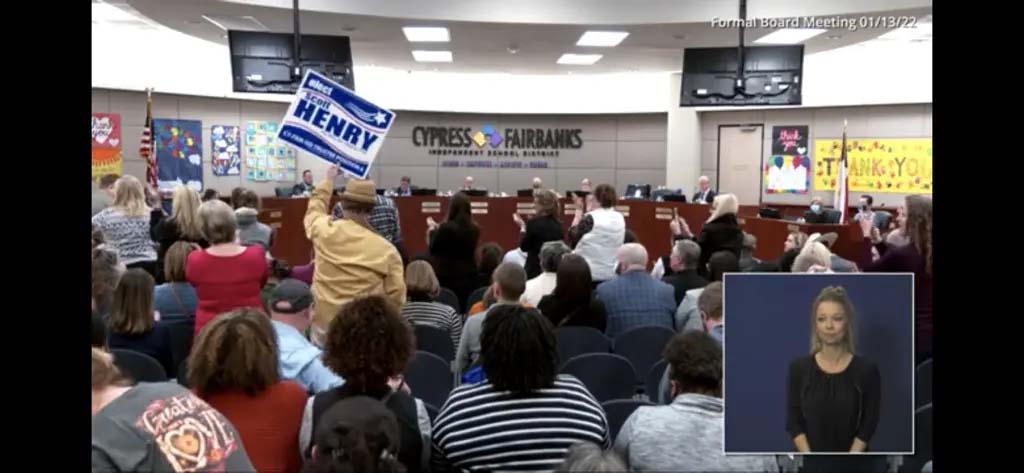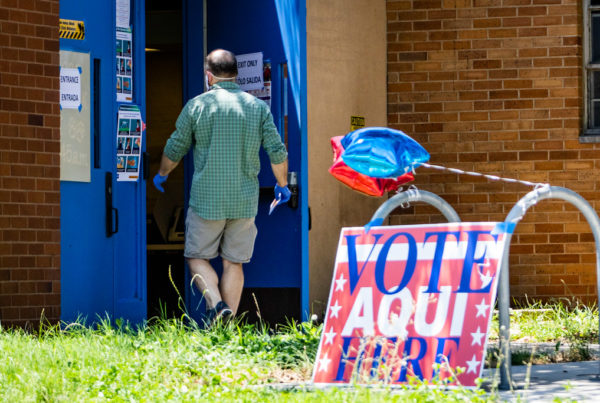From Houston Public Media:
Opponents of so-called “critical race theory” are taking their battle against diversity, equity and inclusion from school board meetings to the campaign trail — in the form of large-dollar donations to a new political action committee (PAC).
The group claims school children are being subjected to “radical indoctrination, anti-American curriculum, and sexually explicit materials.”
Since the beginning of 2021, it’s supported winning candidates in some of the largest school districts in Texas. The PAC expanded its scope this year to the State Board of Education races, where candidates from both parties have shattered political contribution records.
“It’s unprecedented in the State Board of Education races,” said Jennifer Mitchell, governmental relations director at the non-partisan Association of Texas Professional Educators. “It was definitely new to see that level of investment, and it seemed very clearly aimed at opportunities to pick up more support on the board.”
The elections will determine who controls curriculum, textbook orders and the expansion rate of charter schools in Texas.
Critics call some of the donations “unethical,” and some State Board of Education members want changes to campaign contribution rules.
‘Critical race theory’ hits school boards
Pastor John Ogletree won his first election to the school board of Cypress Fairbanks ISD in 2003. Since then, he said, things were mostly calm, quiet and non-partisan in the fast-growing rural-suburban district, just northwest of Houston.
“As the district was growing, with over 100 different language groups, we were trying to make sure our motto — which was ‘opportunity for all’ — that’s where our focus was,” Ogletree said.
Ogletree, a registered Democrat, guided that growth alongside his longtime school board colleagues Don Ryan and Bob Covey — both registered Republicans. Despite the party differences, they ran for the non-partisan school board as a coalition called “the R.O.C.”
“R-O-C, Ryan, Ogletree and Covey,” he explained.
The three, along with four other trustees, signed onto a resolution condemning racism in 2020.
“I have always been a Christian person,” Covey said. “I’ve always believed in the Bible, and I believe in God. And it’s just like Jesus said, ‘Let the little children come unto me.’ And he wasn’t saying which color they were. He just said ‘Come unto me.’ And I feel that if you are a true Christian, you want equity, you want inclusion.”
But people in the community, including some parents, began to argue the resolution itself is racist and that “critical race theory” had permeated district policy.
Don Ryan — the R in the R.O.C. — wasn’t available for an interview. During a board meeting last year, he tried to explain that the district’s curriculum comes from state requirements.
“This does not include critical race theory, and it never has,” he said.
“It does,” members of the audience yelled back.
State representative Jon Rosenthal of Houston spoke during the public comment section of the same meeting.
“I also notice what’s not in the budget: anything about critical race theory, which has been grossly mischaracterized for political purposes to create an emotional wedge issue,” he said, over shouts and boos from the audience.
Ogletree and Covey said they never saw anything like this at board meetings.
“The issue with them was CRT,” Ogletree said. “That we were ‘doing CRT,’ and that there should be no emphasis on social emotional learning, and that the only thing the students needed was reading, writing and arithmetic. That’s what started this past June in 2021.”















